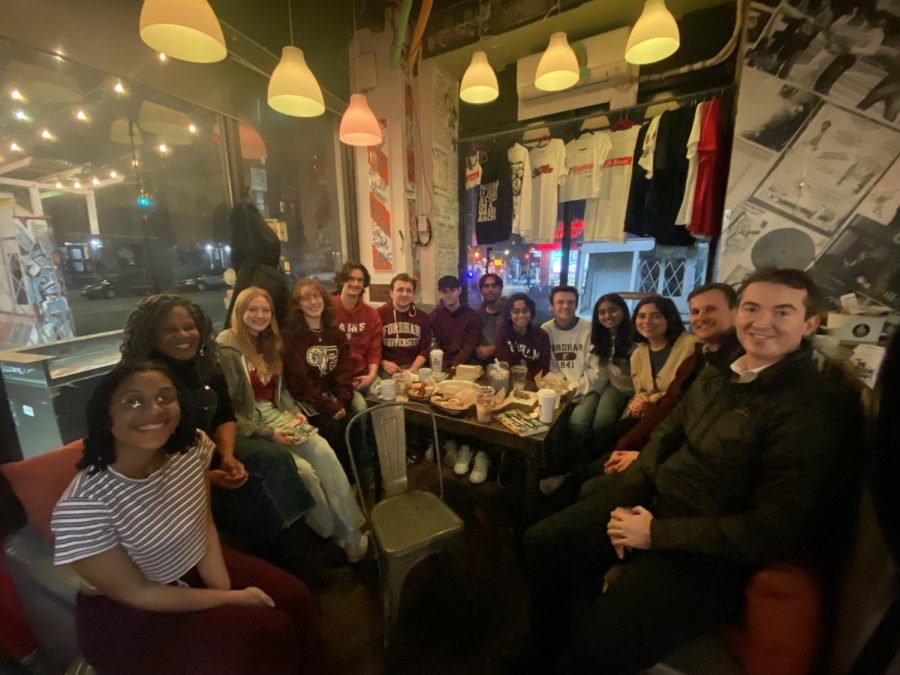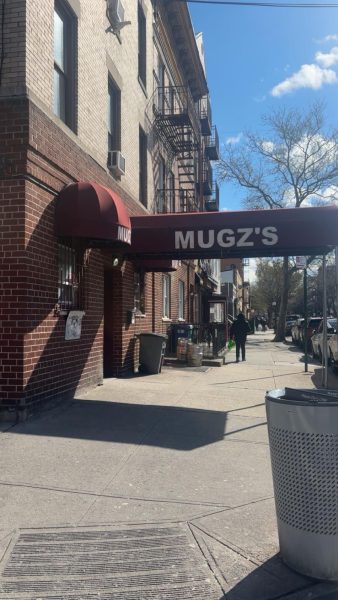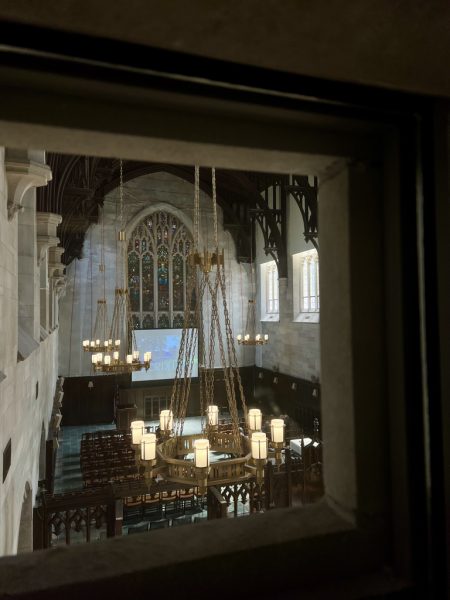Fordham’s West Wing Collaborates with Boogie Down Grind Cafe
The West Wing went to The Boogie Down Grind Cafe on March 7 to sit with author, urban revitalization strategist, MacArthur Fellow and Peabody Award-winning broadcaster Majora Carter. The West Wing is an Integrated Learning Community (ILC) of Ignatian Leadership and Civic Service for sophomores and juniors of Fordham College at Rose Hill and the Gabelli School of Business. Carter is the co-owner of the Boogie Down Grind located in Hunts Point, and she spoke to West Wing members on how to be efficient community partners.
Carter authored the famous “Reclaiming Your Community: You Don’t Have to Move out of Your Neighborhood to Live in a Better One,” published in 2022. Robert J Parmach, Ph.D., and Robert J Hume, Ph.D., for the West Wing assigned this book to study concepts relating to public policy, Ignatian mission leadership and civic engagement. Megha Verghese, GSB ’25, was the first to suggest this book to West Wing Leadership to study the book and meet the author, and Residential Assistant Teshley Kamen, FCRH ’24, brought it to fruition.
Hume, associate dean of the faculty of arts and sciences and political science professor, talked about the outcomes reflecting Carter’s story of being invested and confident in one’s ability to contribute to community engagement.
“In West Wing, we try to teach students how to achieve meaningful social change at the local level, and Majora Carter’s work is such a great example of this,” said Hume.
“We were very grateful that Ms. Carter was willing to meet with our students and share her experiences developing the Hunt’s Point community,” said Hume. “She is such an inspiration, and the cafe she established, the Boogie Down Grind, is a great example of what can be accomplished when you invest in the community.”
The trip aimed to teach members of The West Wing that what is learned in school can be implemented in one’s community.
“As a business student, it was inspiring to see Majora Carter utilize the ideas we learn in school to create wealth within the Bronx community. Her book taught me that creating projects that support the economy or the environment are not mutually exclusive tasks,” said Verghese.
Students sat down with Carter, to have a conversation and understand her drive to do urban revitalization work.
“During the lively conversation over coffee and homemade sandwiches, Majora Carter spoke about central themes in her book as well as probed the students’ questions about how best to be an ally for accompaniment and urban revitalization efforts. Carter also spoke eloquently about how her faith animates her daily life and serves as a bedrock for the often challenging and even frustrating, important work she does,” said Parmach.
Hume said he hopes students can “come away with a better understanding of how people can change their communities when they choose to stay in them and build careers there. The Boogie Down Grind is an exciting example of what can be done.”
Carter said working from faith reflects West Wing principles to use Ignatian tradition to lead as a motive to effect change within Fordham and the world.
“This event inspired me to reevaluate how I perceive my hometown community. Rather than starting a brand new life in New York City where everything appears fresh and glamorous, I should foster efforts into my home town and help produce change in the community that raised me,” said Dylan Ayer, FCRH ’25.
Carter also spoke about how community-engaging work leads to criticism and she spoke about how to stay resilient.
“One of the questions asked to Ms. Carter was how she responds to backlash from members within her community, who are often misinformed or misconstrue Ms. Carter’s efforts to help the community,” said Sejal Getchell, FCRH ’25.
“Ms. Carter always tries to reach out and clear up confusion or misunderstanding, but she has also come to realize that some people are unwilling to change their minds, and they’re not worth energy that could be devoted elsewhere,” said Getchell. “Ms. Carter takes her lows in strides, doesn’t win every battle, and is still underlooked despite all she has accomplished, yet she doesn’t let negative experiences deter her from moving forward and giving her all to her community.”
Getchell also said that Carter mentioned that the Bronx should be treated as a place to improve not leave.
“Majora Carter is motivated by her community and the prospect of improving conditions so that members of the community can be proud of their environment, and proud of being from the Bronx,” said Getchell.
“She opposes the idea that the Bronx is a place to get out of. Ms. Carter mentioned a mentality of escaping a lower-income community, often through educational attainment and moving to nicer neighborhoods with cute coffee shops,” said Getchell. “This type of mentality stigmatizes the Bronx from both the inside and outside.”
“I would encourage any Fordham students to venture down to Hunts Point and visit the cafe. The Bronx community extends beyond the borders of just Arthur Ave. The Boogie Down Grind cafe feels like a hidden gem. It’s a cozy, exciting space that easily draws Bronx residents in,” said Getchell.










































































































































































































